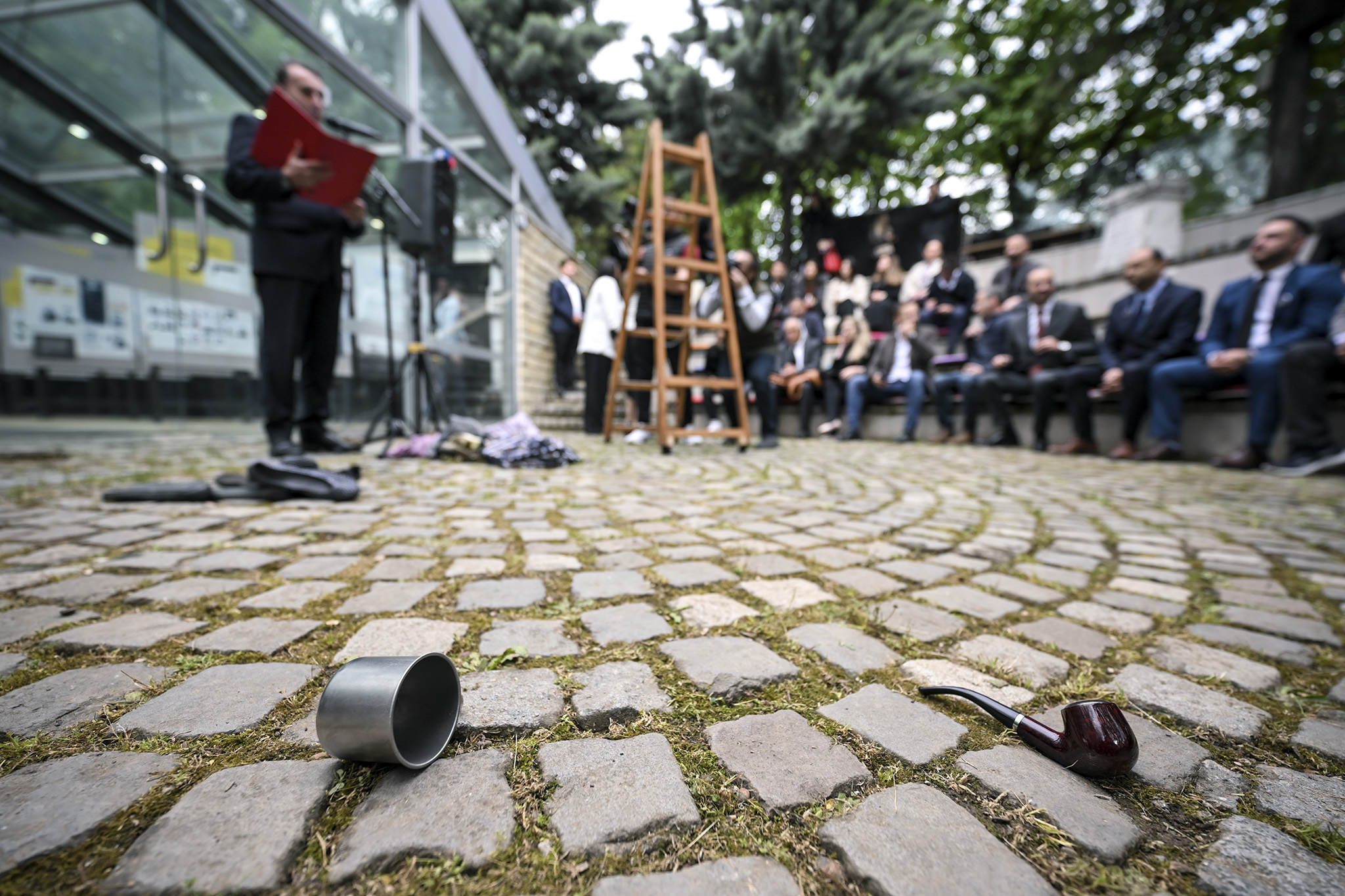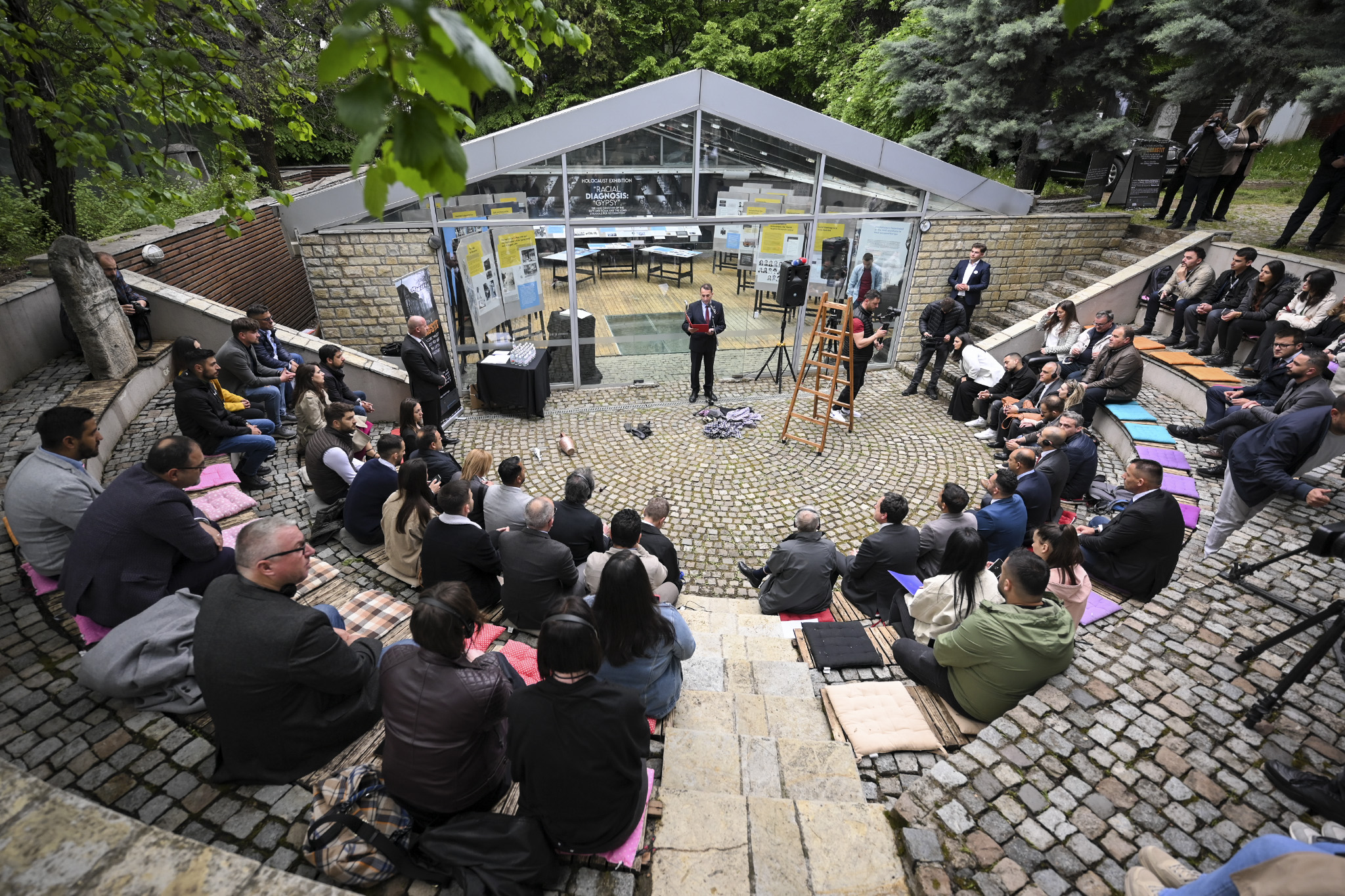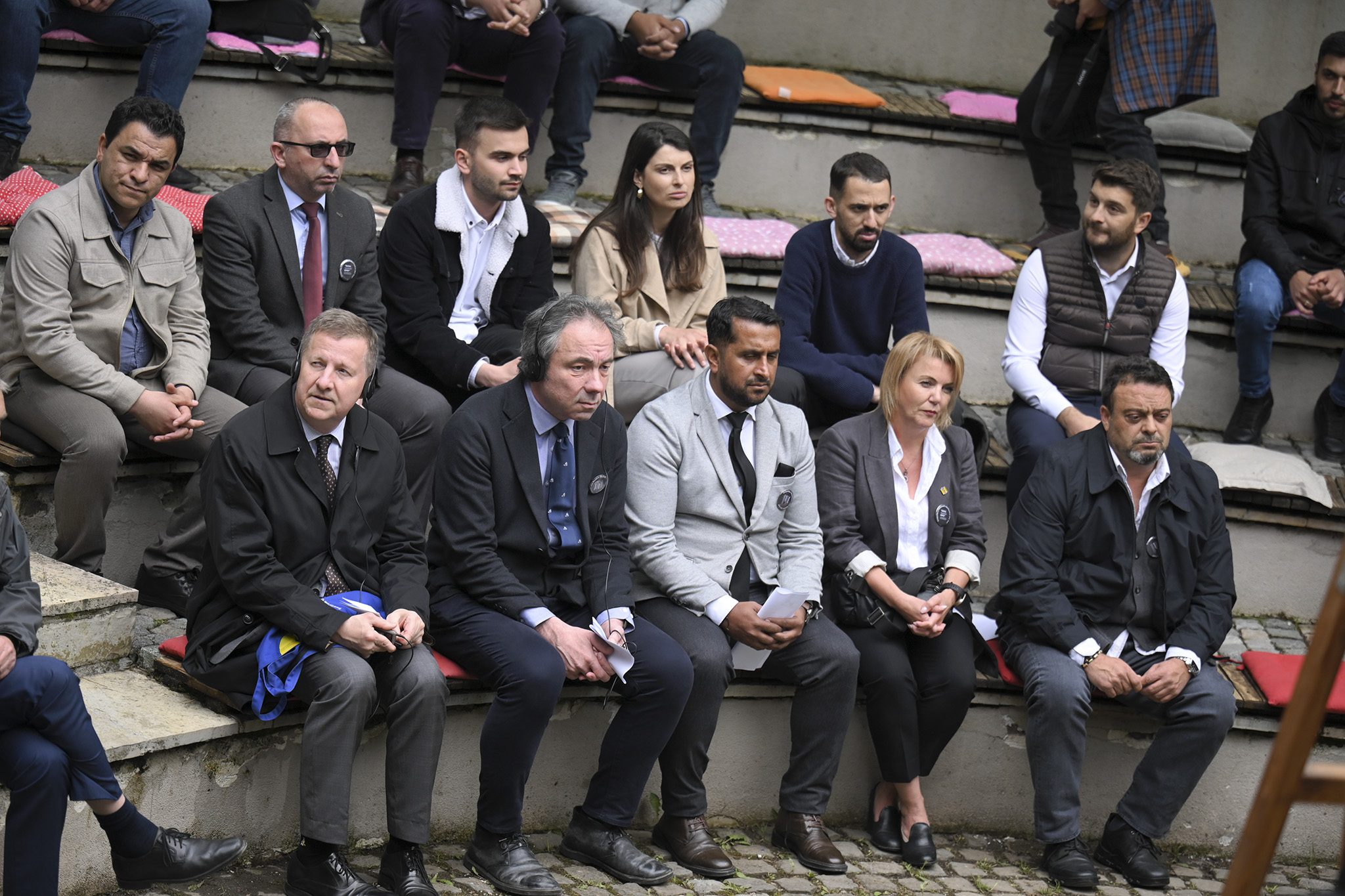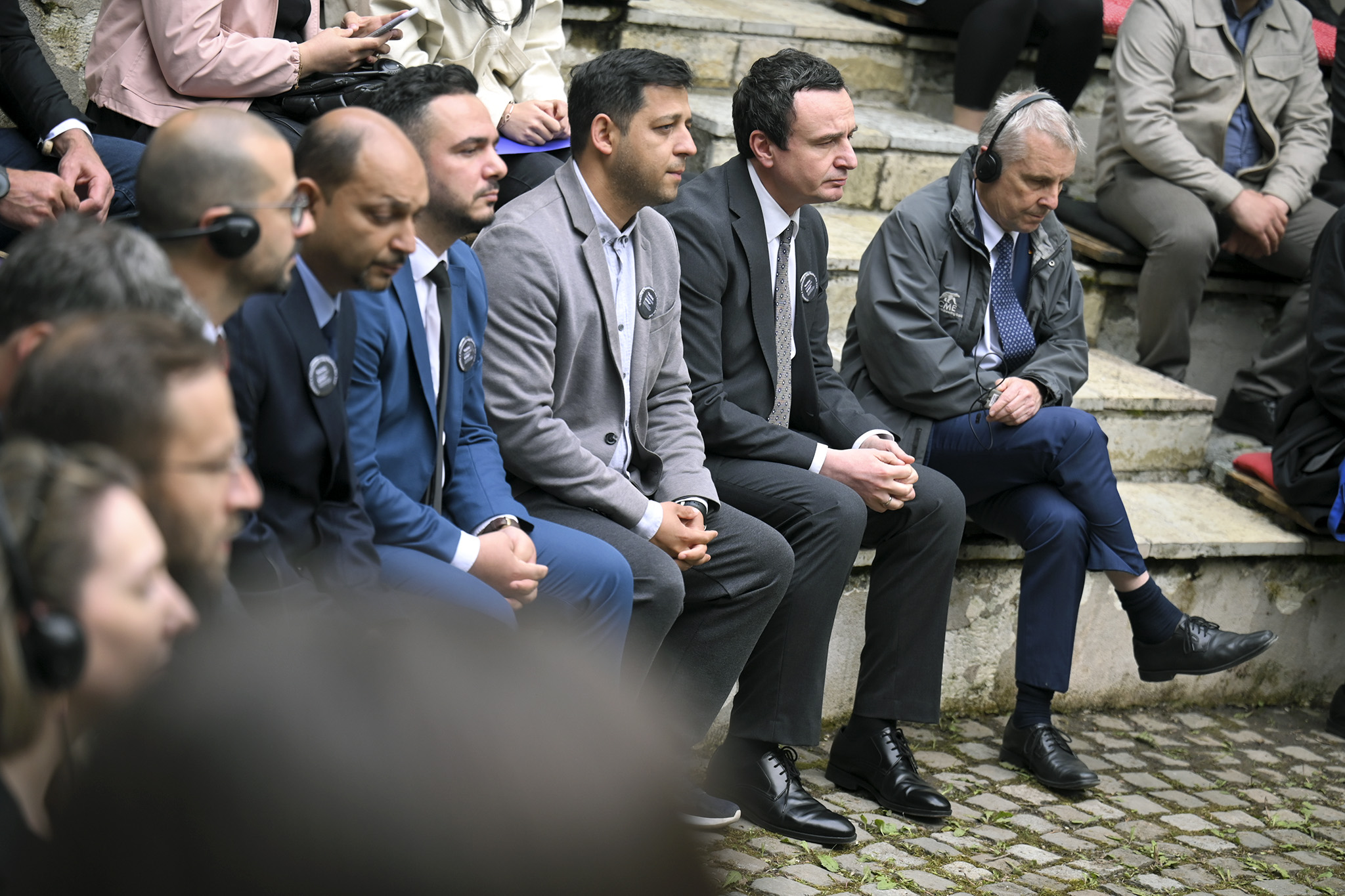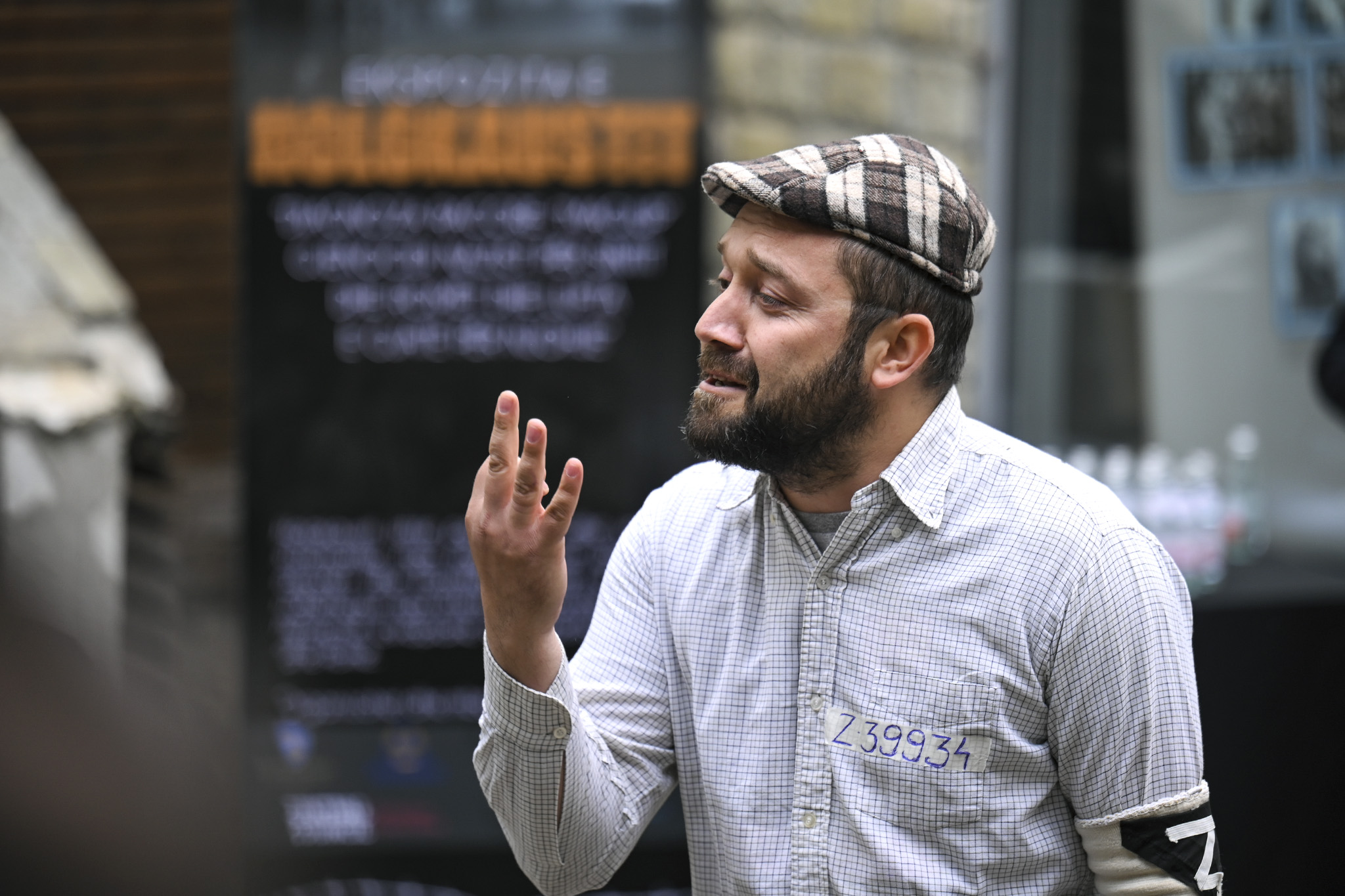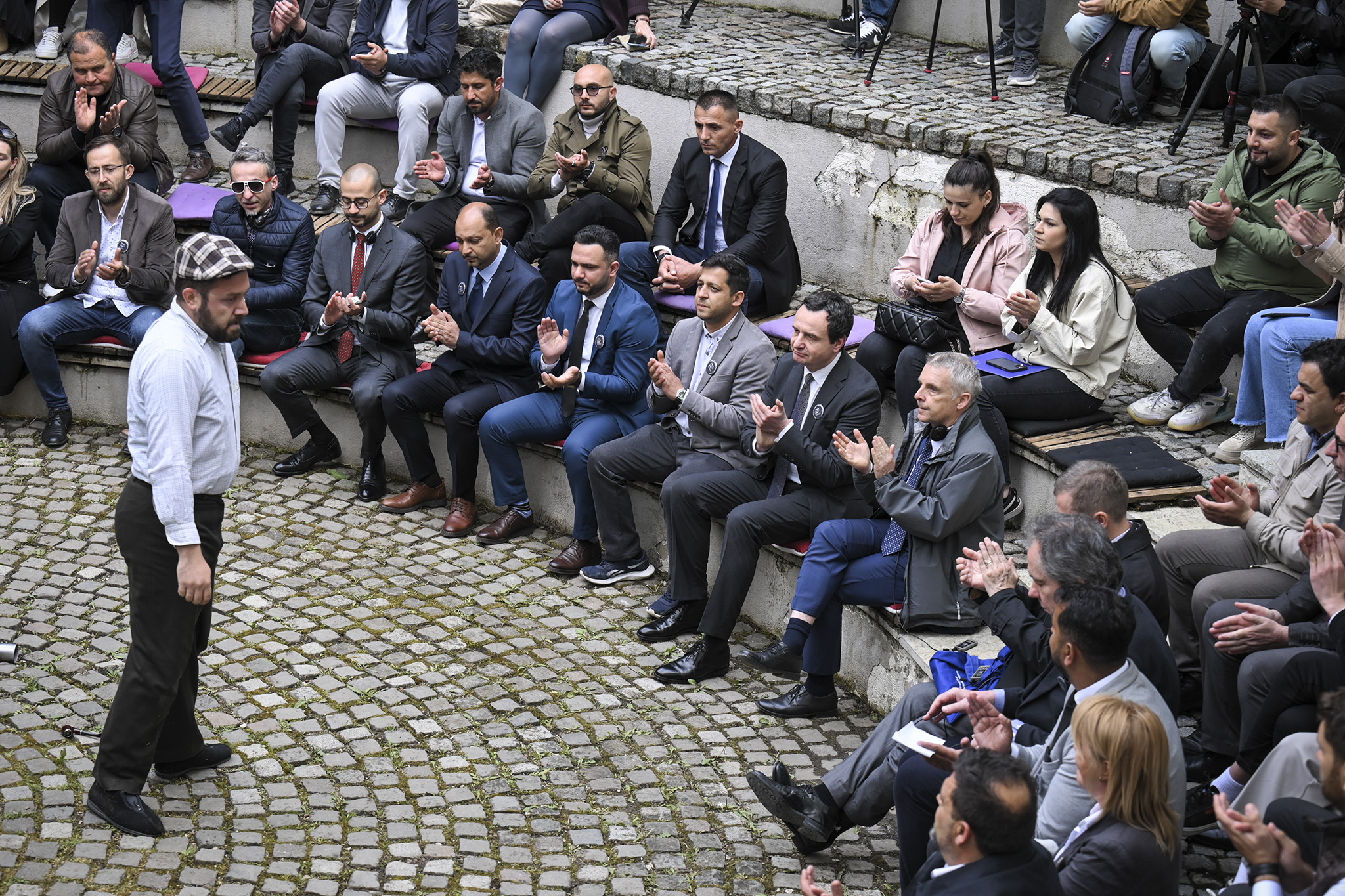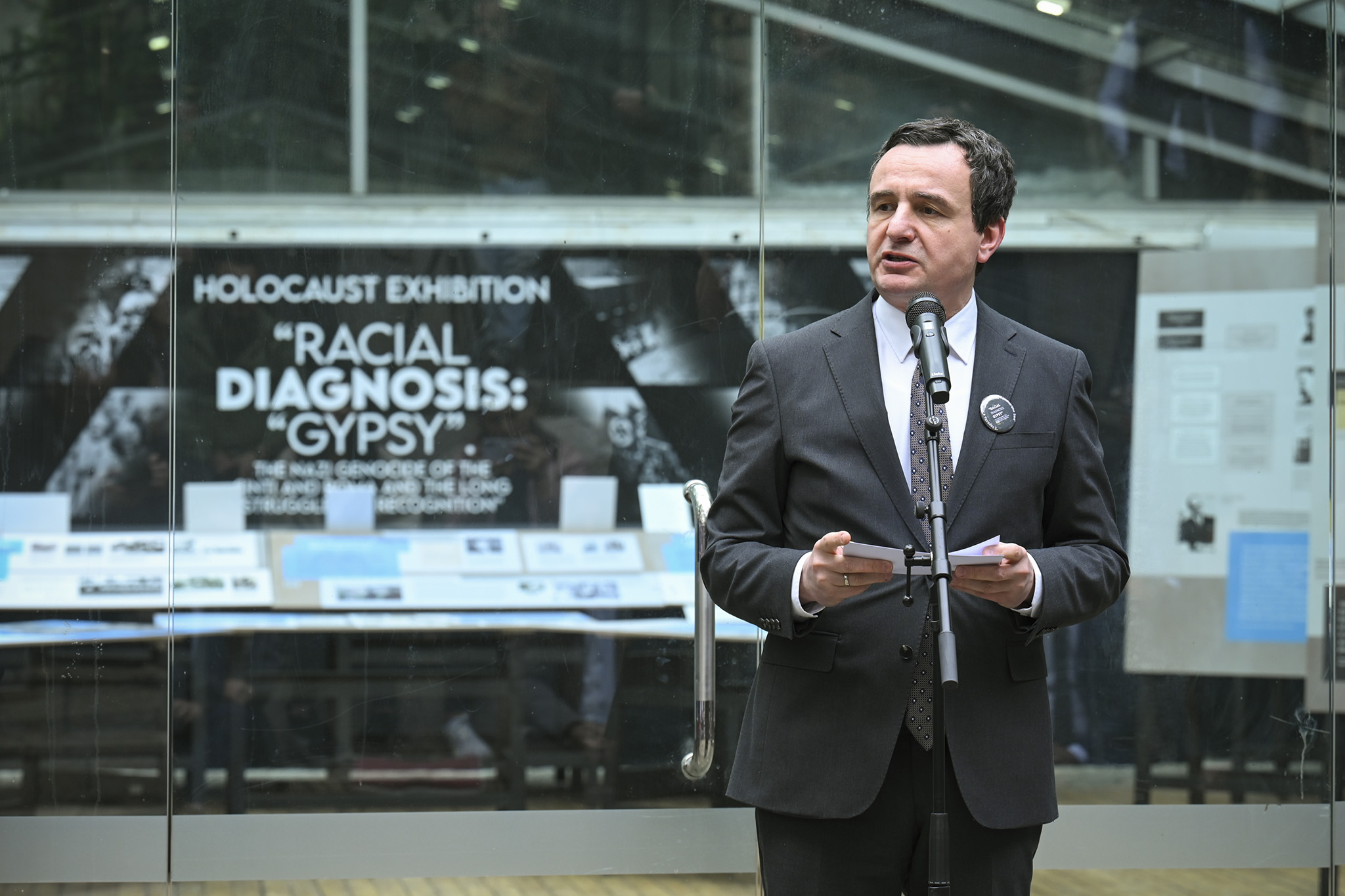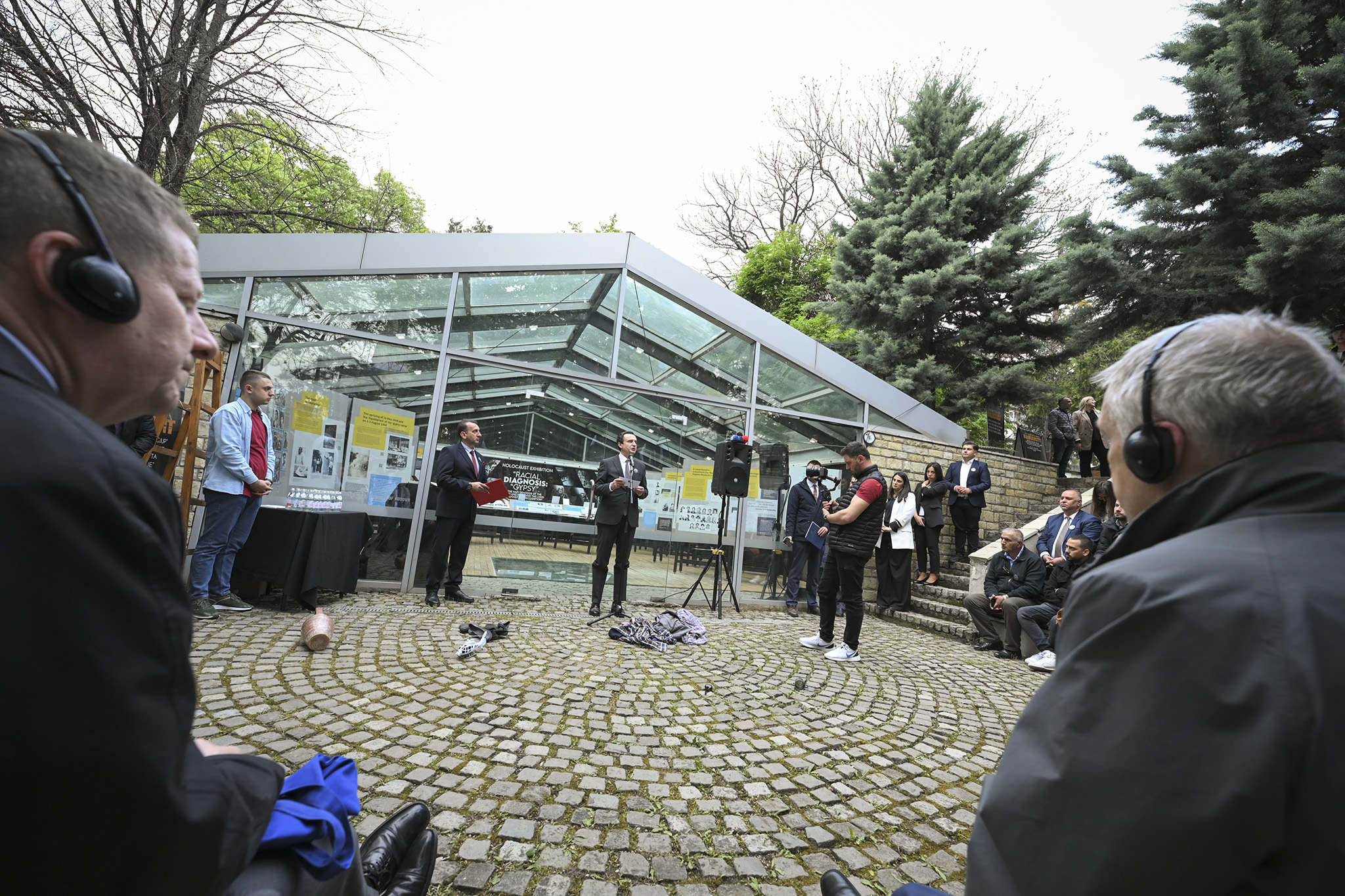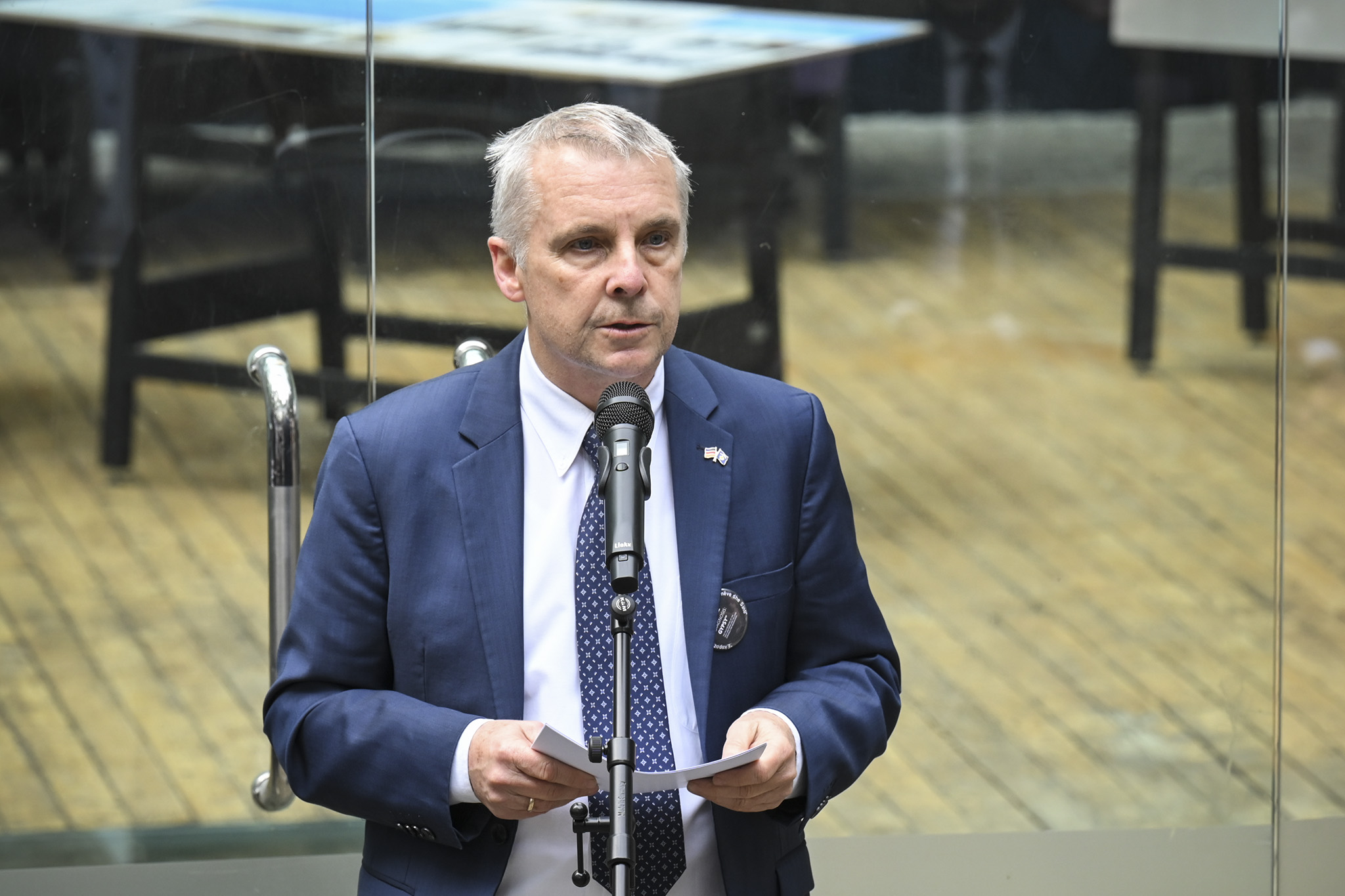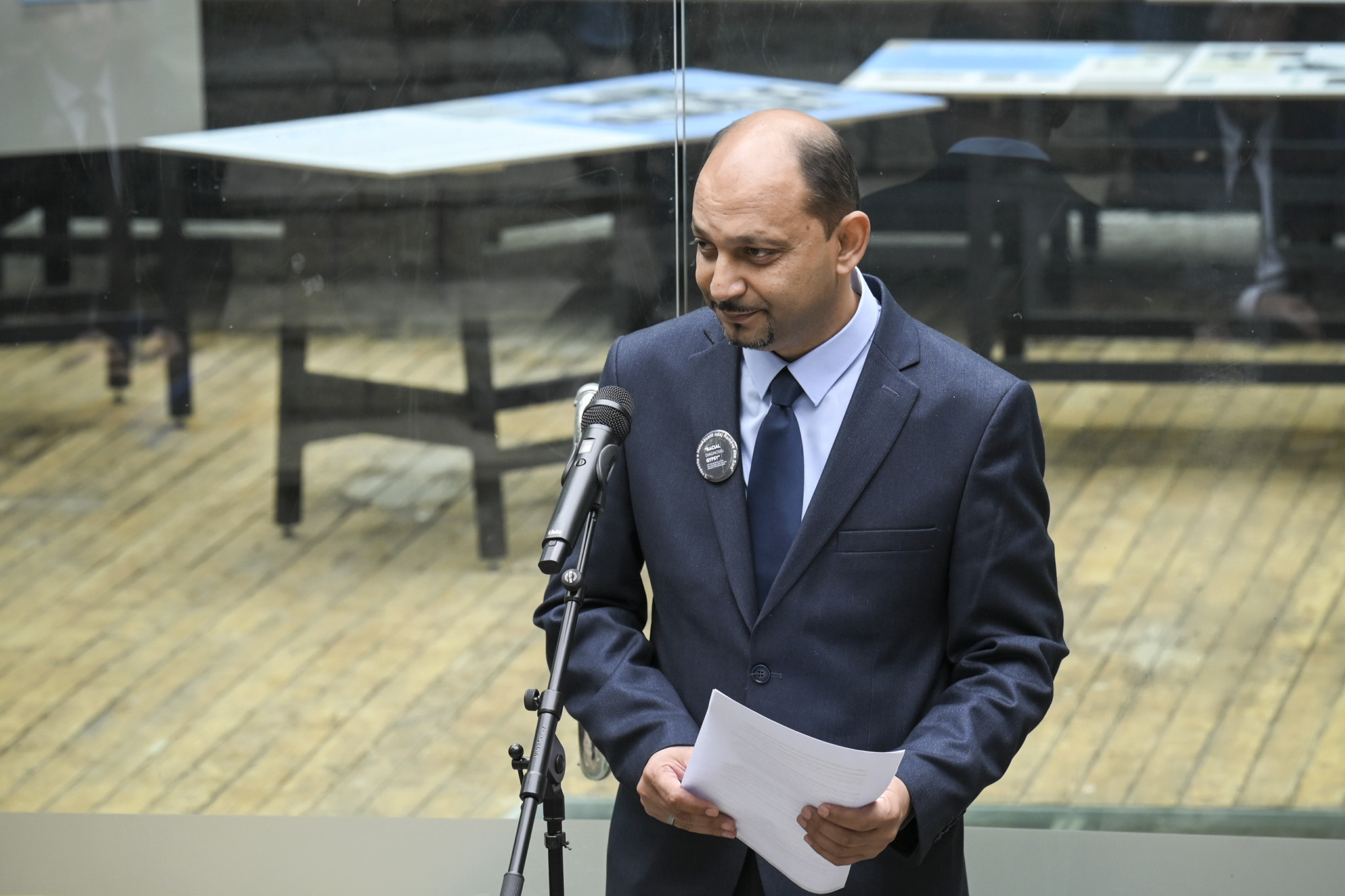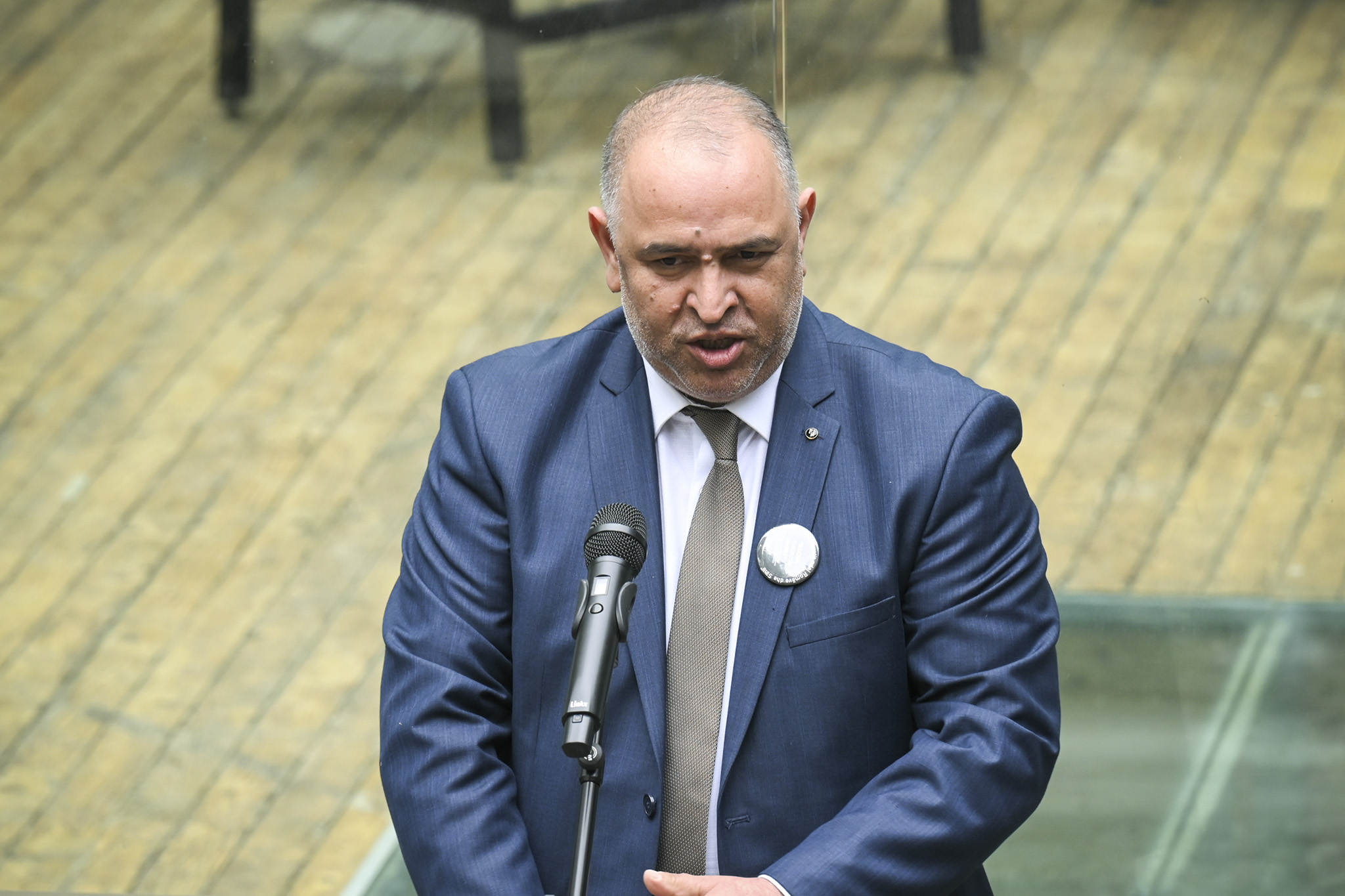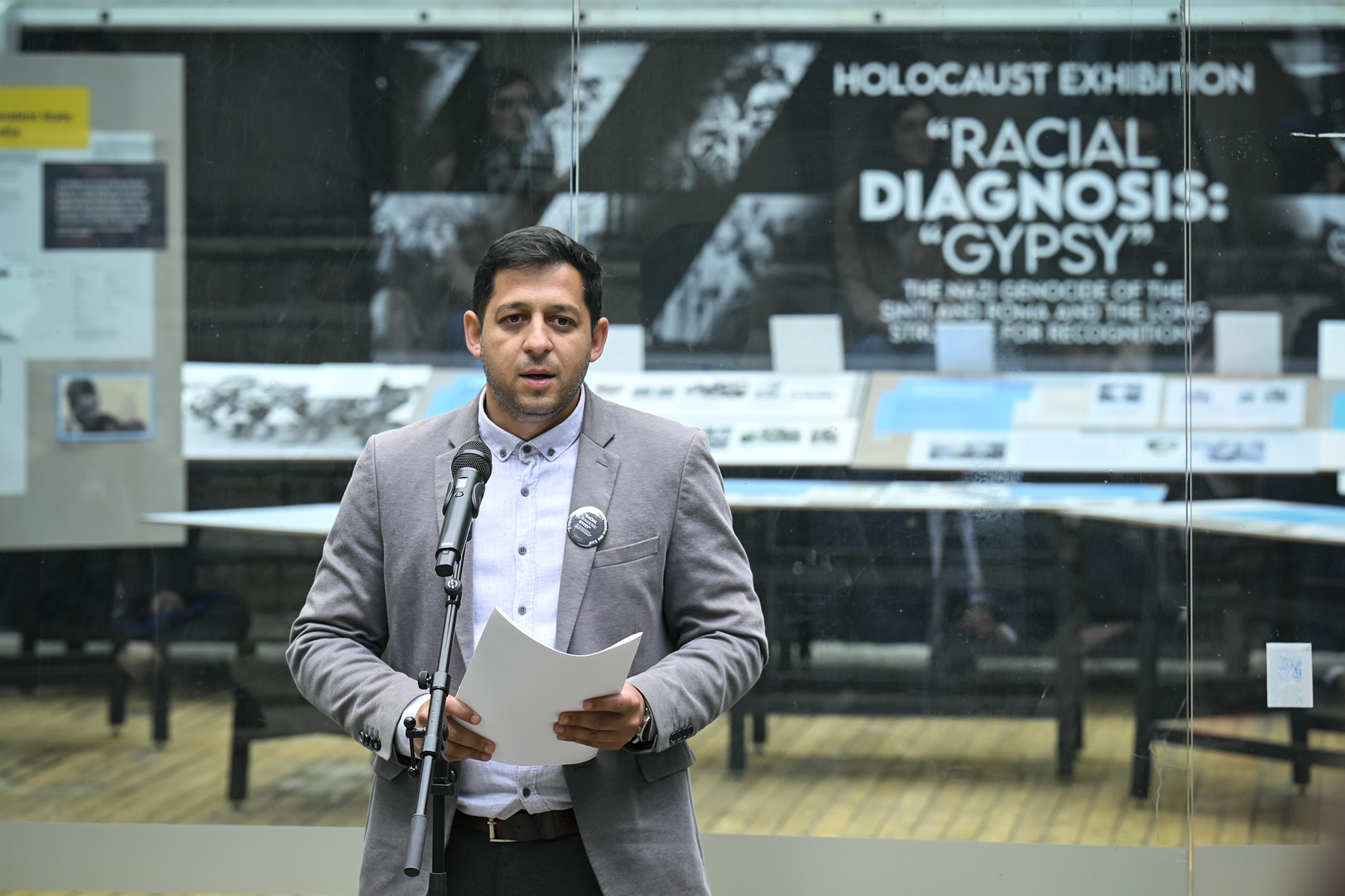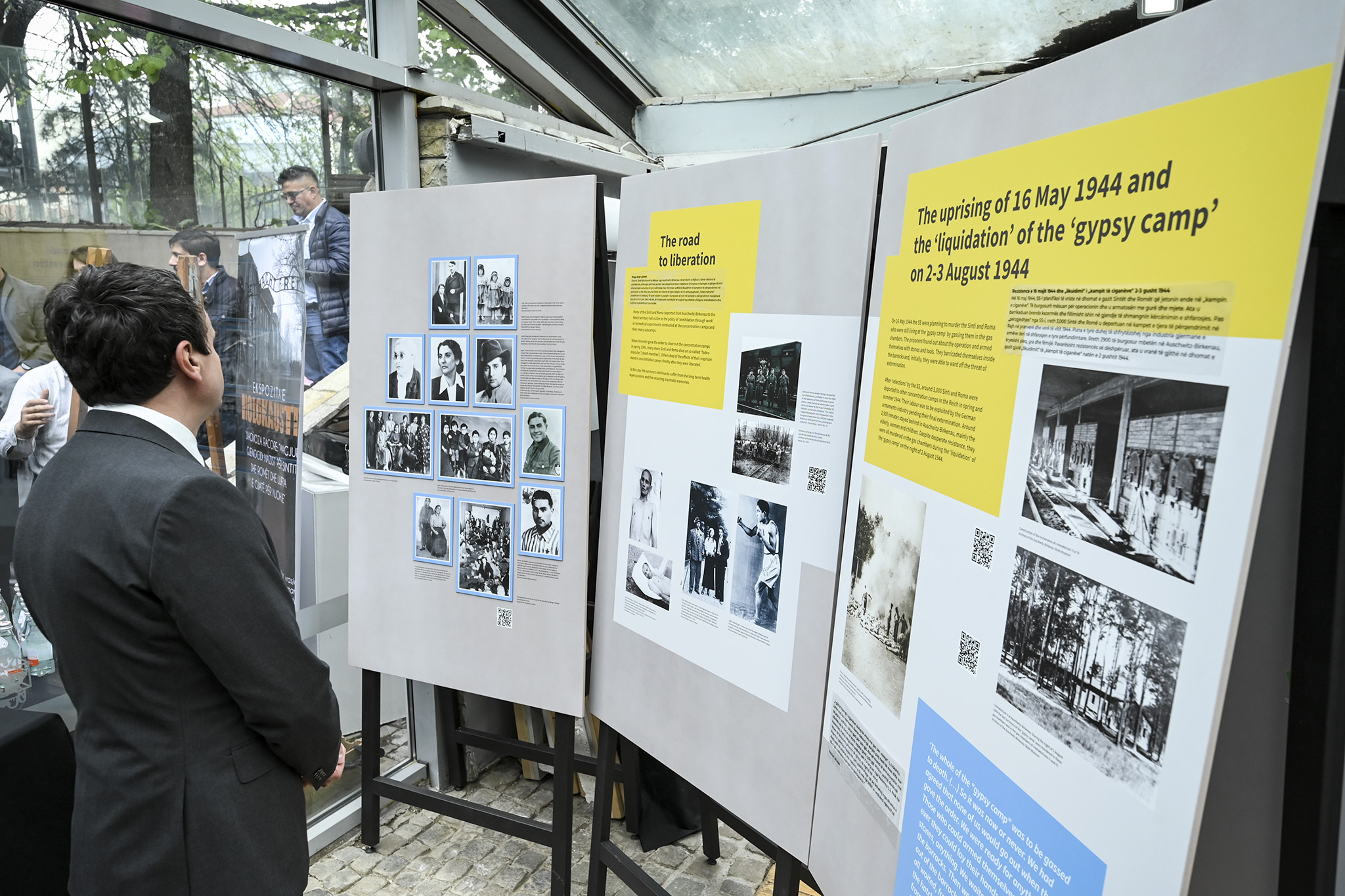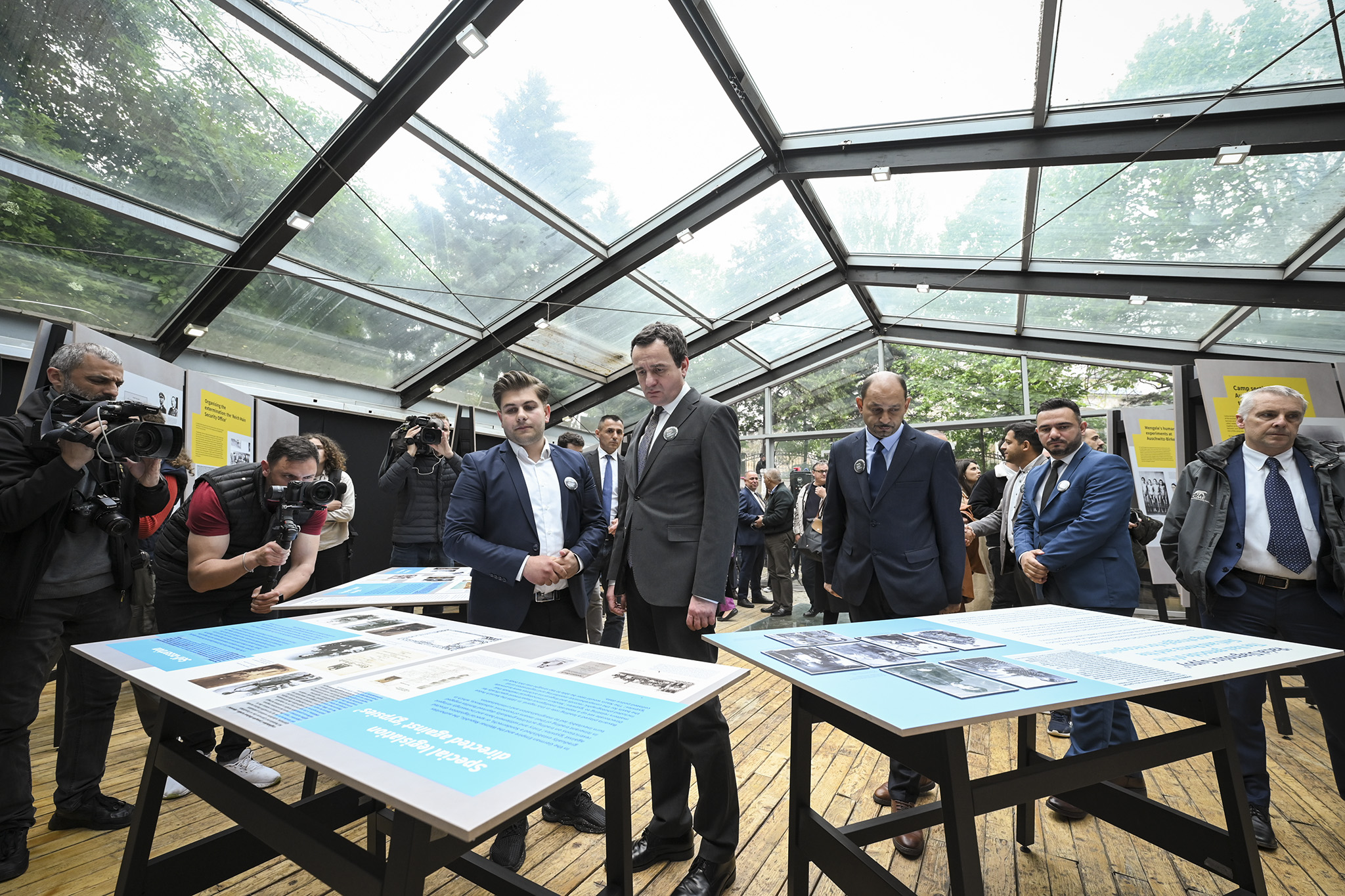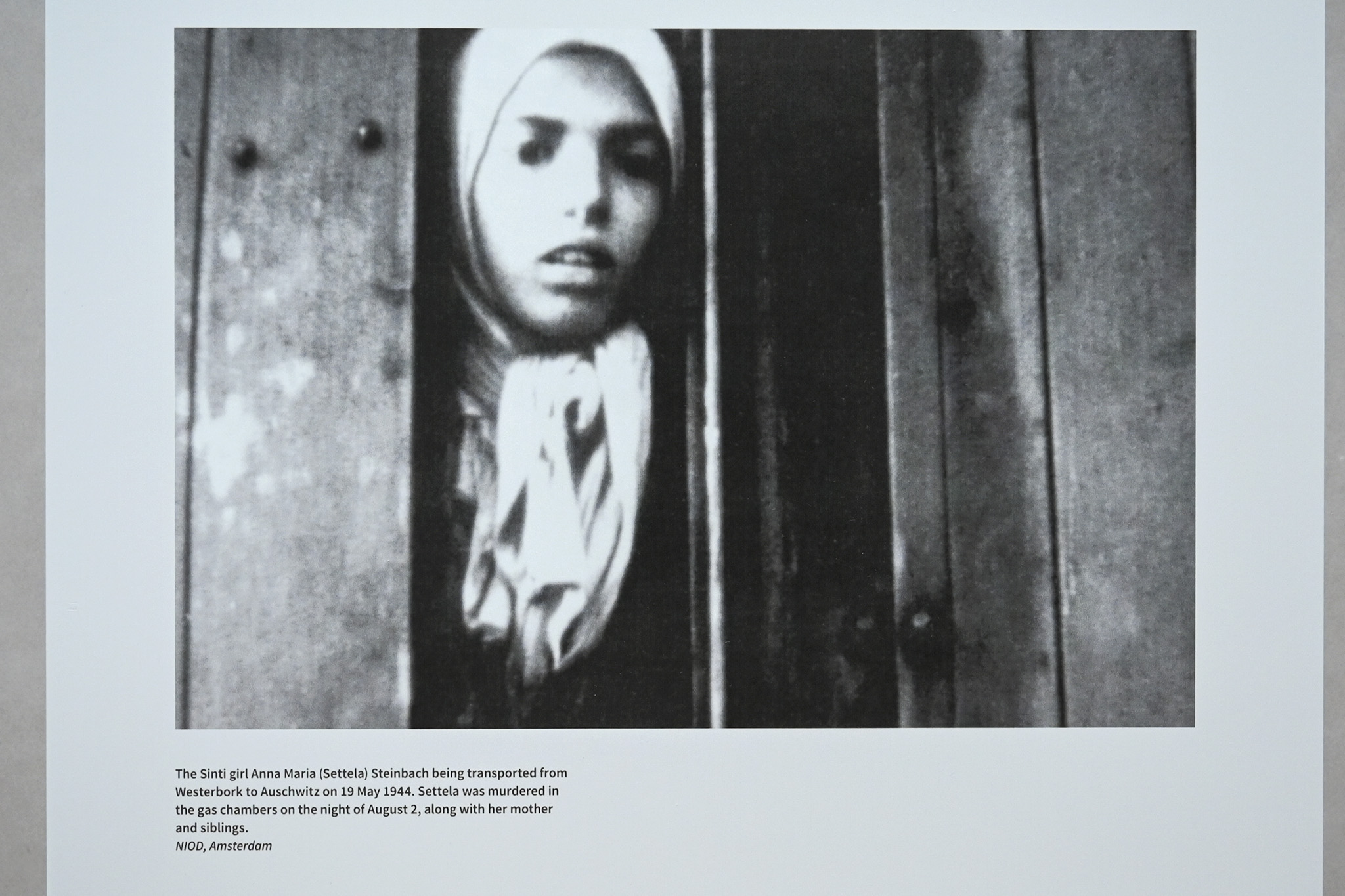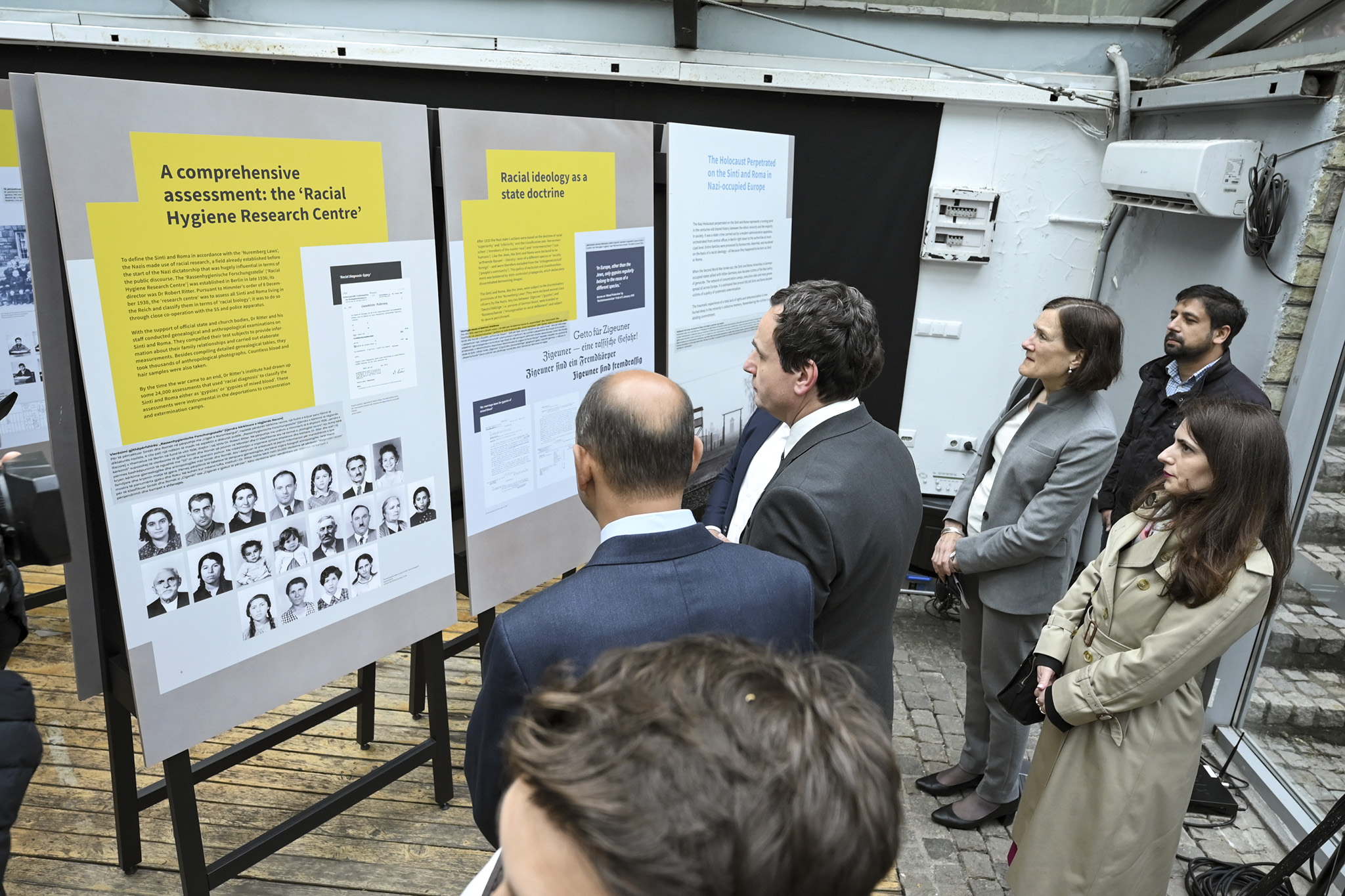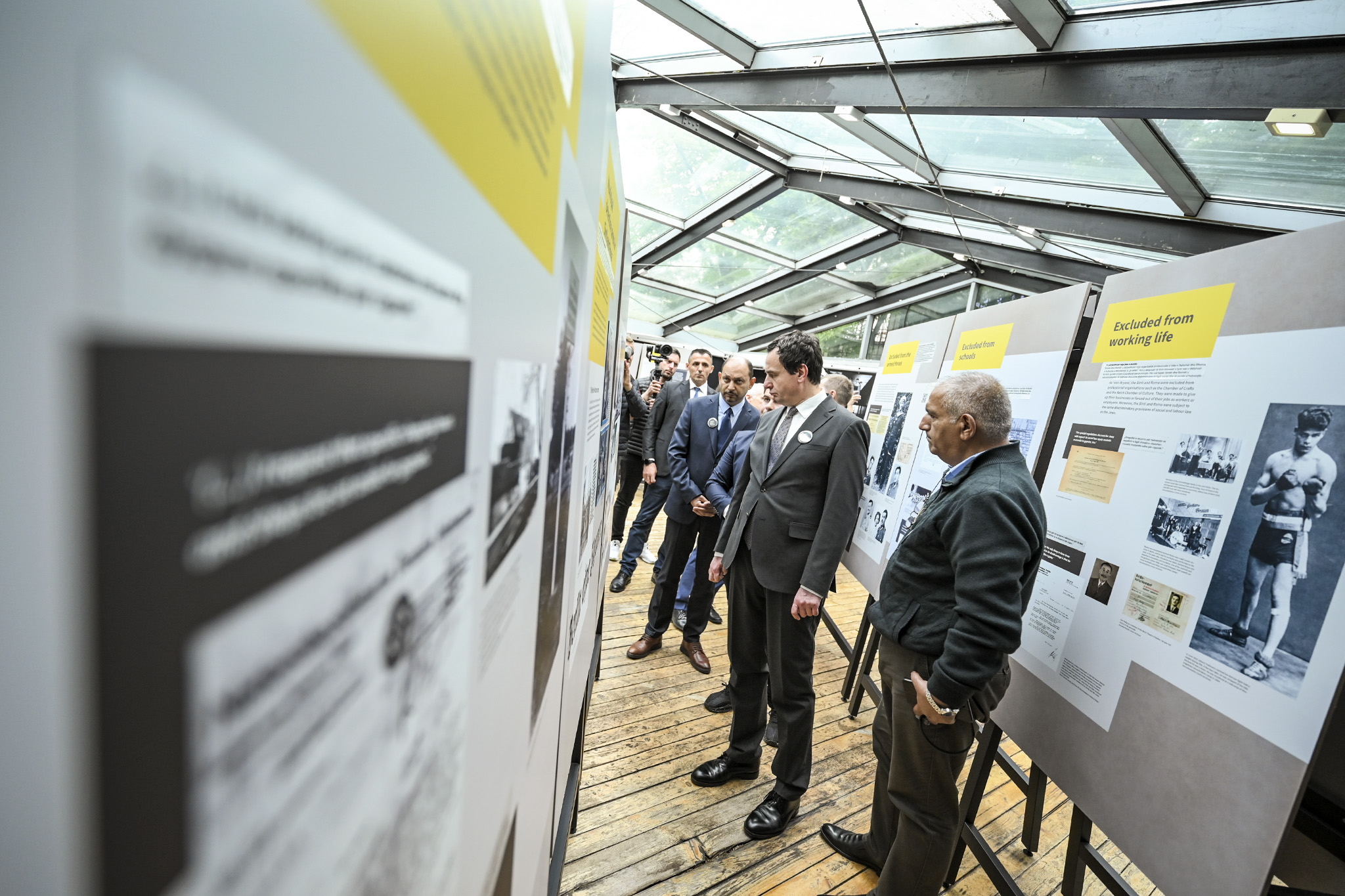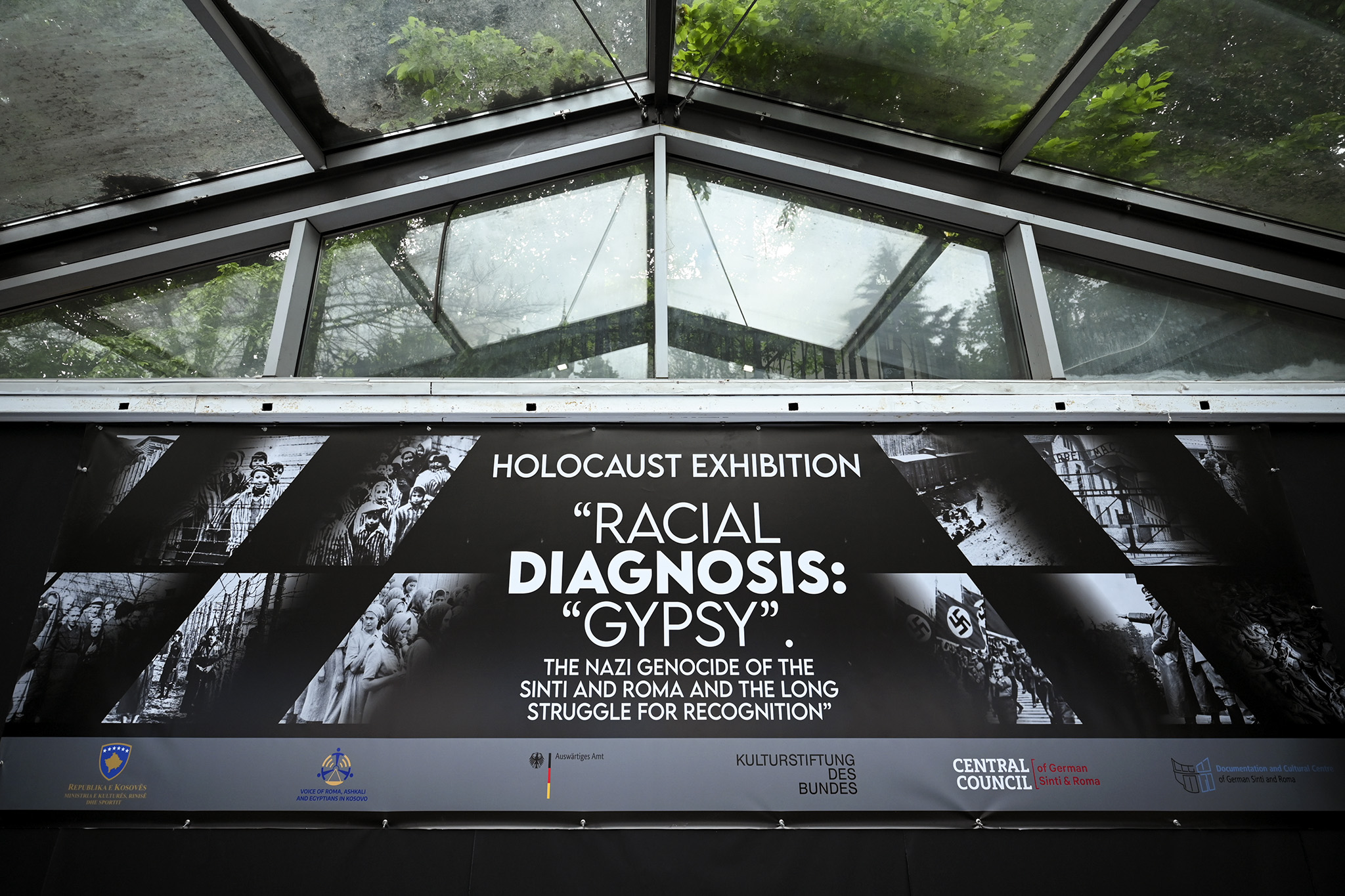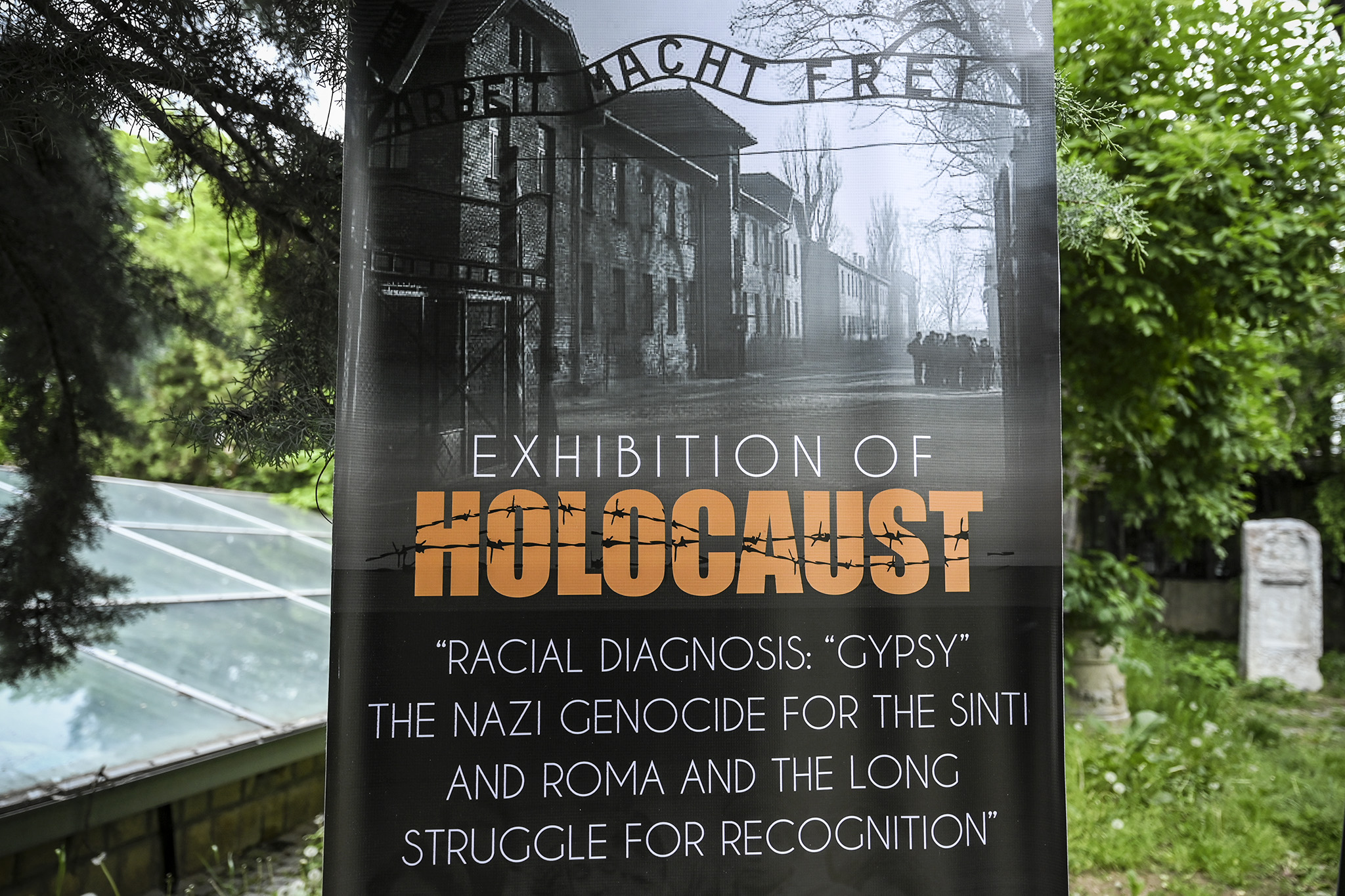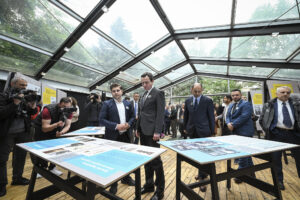Prishtina, 10 May 2023
“Never forget: “Kurrë mos e harro” and “Never again”, or “Kurrë më”, are the principles to always remember the Holocaust, which in the case of Roma and Sinti people has a special significance because the genocide against them has often been forgotten, and they continue to face open discrimination in today’s Europe, said the Prime Minister of the Republic of Kosovo, Albin Kurti, at the opening of the exhibition on the Holocaust against Roma and Sinti, held today at the National Museum of Kosovo.
He encourage all Kosovo citizens to visit this highly valuable and very important exhibition, which recalls an almost forgotten history of the Holocaust.
Prime Minister Kurti’s full speech:
Your Excellency, Ambassador Joern Rohde of Germany,
Ambassador Tomas Szunyog, Head of the European Union Office in Kosovo,
Deputy Ambassador Ferrero of Italy,
Dear Executive Director of the Voice of Roma, Ashkali and Egyptians, Mr. Isak Skenderi,
Dear MP Galushi,
The Honorable Deputy Minister of Culture, Youth and Sports, Elshani,
Ladies and gentleman,
Sisters and brothers,
Honorable attendees,
Never forget: Kurrë mos e harro. This lesson on always remember the Holocaust holds a special meaning in the case of the Roma and Sinti. Because the genocide against them has often been forgotten, to the point that historians refer to them as the “forgotten victims of the Holocaust”. Therefore, this exhibition, which is opening today in Pristina, holds a significance that extends beyond the borders of Kosovo. It forms part of the new efforts worldwide to accurately document the genocide against Roma and Sinti people – so that it is never forgotten.
Regarding the accurate number of Roma and Sinti victims in the Holocaust, the figures of historians differ. Everyone however agrees that the consequences of the Holocaust on their population have been devastating: The Nazis and their collaborators eliminated more than half of the Roma and Sinti population in Europe. Among these victims there were thousands of people killed in a single night, on 2 August 1944, in the Auschwitz-Birkenau concentration camp.
However, the Roma and Sinti people of that dark period were not only victims of Hitler’s genocidal project; they were also inspiring examples of resistance to this project. Next week, on 16 May the Day of Roma Resistance will be marked. On this date, 79 years ago, in 1944, over 600 imprisoned Roma and Sinti, armed only with hammers, pickaxes and shovels, organized a daring uprising against the guards of Auschwitz-Birkenau. Unfortunately, it was only a matter of time until the guards regained control of the camp. However, thanks to the organized resistance of 600 heroes and heroines, the Nazis did not manage to send even one Roma or Sinti to the gas chambers on that day. As one Holocaust survivor later said, “May 16th is a reminder that there is no destructive power that cannot be opposed”.
In addition to “never forget,” there is another lesson that is often mentioned in connection with the Holocaust: “Never again” or “Kurrë më”. This lesson also holds a special meaning in the case of Roma and Sinti. Because, they continue to face open discrimination in today’s Europe. In fact, discrimination against Roma children in primary schools has been the subject of consideration in several of the most important cases of the European Court of Human Rights in the field of equality before the law. These cases show how widespread discrimination and social exclusion of these communities is, even more than half a century after the end of the Holocaust.
It may seem to us that there is very little chance of another genocide against Roma and Sinti people in Europe. However, to ensure that it never happens again, every European society must double its efforts to combat discrimination against Roma and Sinti people, as well as to find ways to make them part of social, economic, cultural, and political life as free and equal citizens.
The Government of the Republic of Kosovo has taken several concrete steps in this direction, specifically for the Roma, Egyptian, and Ashkali communities. Same as every community in our country, we consider that they belong to Kosovo and Kosovo belongs to them. Through various initiatives, we have awarded 500 scholarships worth 300,000 Eur to high school students in these communities. We have also provided 100 additional scholarships for students from these communities at public universities. Meanwhile, we have recruited 100 interns for a 6-month internship roles in public institutions, with priority for youth from non-majority communities. And, together with the Voice of Roma, Ashkali and Egyptians and other partners, we have launched for the first time a national platform where cases of discrimination can be reported.
The exhibition that is opening today, is the latest example of the fruitful cooperation between the Government of Kosovo and civil society. I hope that this collaboration will continue in the future with new initiatives and programs. Until then I encourage all Kosovo citizens to visit this highly valuable and significant exhibition, which showcases a nearly forgotten history of the Holocaust.
Thank you.

